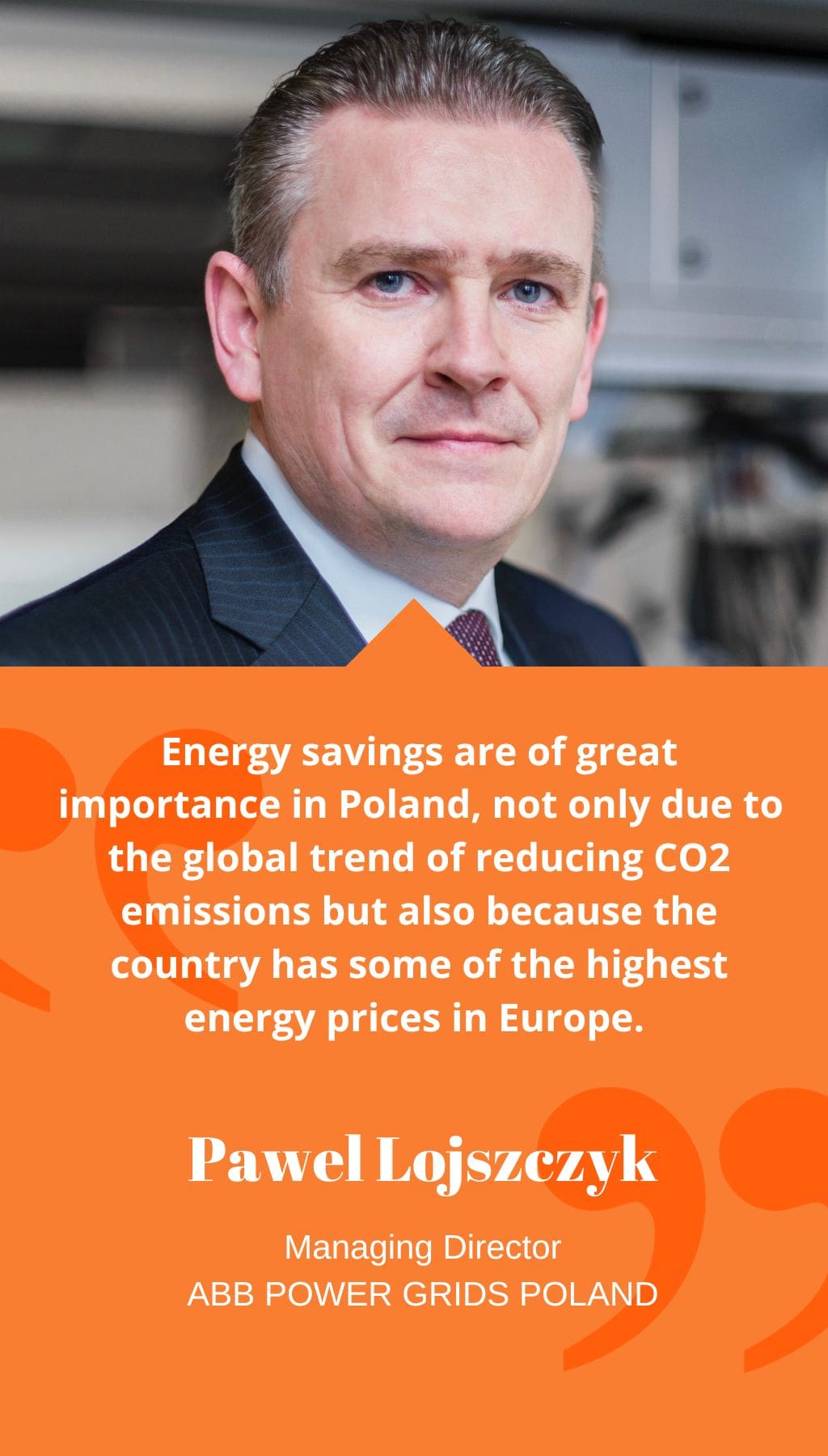
- Poland | 2 February 2019

Could you tell us more about the workforce in Poland and how it benefits ABB’s business operations here?
Certainly. Poland has a highly educated and skilled workforce, which is a valuable asset for any company doing business here. Moreover, the country has a strong tradition of technical education, and its universities and technical schools are well-regarded globally. This provides us with access to a pool of highly qualified engineers and other professionals who are able to provide us with the technical know-how that we need to develop and manufacture our products.
Additionally, ABB has a long-standing commitment to research and development, and Poland’s dynamic and innovative startup ecosystem is an attractive source of collaboration and new ideas. Through our strategic partnerships with academic institutions, research centers, and other companies in the Polish innovation ecosystem, we are able to leverage local expertise and collaborate on new and emerging technologies.
Finally, Poland’s central location and strong transportation infrastructure make it an ideal hub for our operations in Central and Eastern Europe. We are able to easily access key markets in the region, and our proximity to major transportation hubs such as airports and seaports allows us to efficiently distribute our products and services throughout the region.
What are the main drivers for your business in Poland currently, considering the wide range of projects you have developed here, such as power plant modernization, power grids, and renewable energy?
We have five business divisions operating in Poland, and the one with the highest demand is our energy sector-focused business. The majority of investments in this sector come from private entities, with lesser involvement from the government. However, we have noticed a slight decrease in investments in the power sector recently.
On the other hand, our rolling stock business has been successful in Poland. We operate three large rolling stock factories and have been delivering various components for this sector. Similarly, renewable energy has also gained momentum after a period of slowdown, with the country investing more in this area. We are particularly excited about the potential for offshore wind projects in Poland, and we expect to be involved in these projects in the coming years.
In addition, we are witnessing a growing interest in automation of processes and control systems in the energy sector, such as microgrid management and energy distribution. The increasing need for autonomous management requires complex algorithms and support systems, and we are committed to developing innovative solutions that drive the digital transformation of industries.
ABB has an R&D center in Krakow. Can you provide examples of innovations that have originated from there and are specifically aimed at serving the energy sector?
Certainly! One of the notable innovations that we are proud of is the system we implemented for the Warsaw metro, which recovers and stores braking energy from decelerating metro cars and makes it available again for acceleration. This unique feature not only helps to reduce operating costs but also enhances energy efficiency, contributing to sustainable transportation.
When it comes to the adoption of new technologies in the energy sector, how forthcoming is Poland compared to other industries or countries in the region?
Poland still has some catching up to do in terms of the adoption of new technologies compared to Western European countries. From my perspective, we are a few years behind in this regard, and it appears that many companies in Poland have other investment priorities rather than focusing on new technologies. However, we have noticed a positive change in recent times.
Energy savings are of great importance in Poland, not only due to the global trend of reducing CO2 emissions but also because the country has some of the highest energy prices in Europe. As a result, customers in Poland are becoming increasingly interested in the innovative solutions we offer in this field, and this indicates a growing openness towards adopting new technologies in the energy sector.














